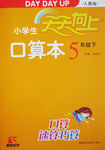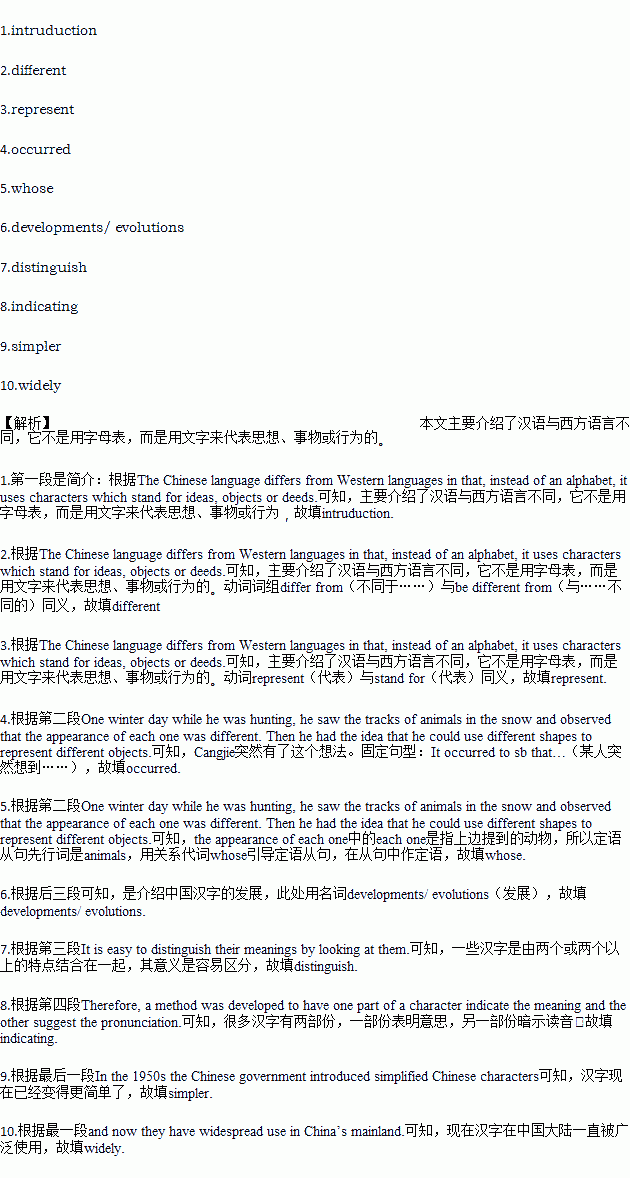题目内容
The Chinese language differs from Western languages in that, instead of an alphabet, it uses characters which stand for ideas, objects or deeds. Chinese words are formed by putting together different characters. In many cases, a single character can also make up a word. The history of the Chinese language can be examined by looking at how these characters developed.
Chinese writing began thousands of years ago. According to an ancient story, a man named Cang Jie invented Chinese writing. One winter day while he was hunting, he saw the tracks of animals in the snow and observed that the appearance of each one was different. Then he had the idea that he could use different shapes to represent different objects. The first Chinese characters were drawings of physical objects. Some characters have been simplified and others have been made more difficult over time. However, as a whole the characters have developed from drawings into standard forms.
Not all characters were developed from drawings of objects. Sometimes to express ideas, some characters were made by combining two or more characters together. Other characters were developed for directions and numbers. It is easy to distinguish their meanings by looking at them.
Though these kinds of characters indicate meanings, one of their shortcomings is that they do not show how they should be pronounced. Therefore, a method was developed to have one part of a character indicate the meaning and the other suggest the pronunciation. Many Chinese characters used today were made this way.
In the 1950s the Chinese government introduced simplified Chinese characters and now they have widespread use in China’s mainland.
Brief 1. | The Chinese language is 2. from western language because it uses characters to 3. ideas, objects or deeds. |
The origins of Chinese characters | An idea 4.to Cangjie after he observed the tracks of animals 5. appearance differed from each other in the snow. |
The 6. of Chinese characters | ·As a whole, the characters developed from drawing into standard forms. ·Some characters were made by comining two or more characters together, whose meanings are easy to 7.. ·Many Chinese characters consists of two parts, one 8. the meaning and the other suggesting the pronunciation. ·Now, Chinese characters have become much 9. and been used in china’s mainland 10.. |
 天天向上口算本系列答案
天天向上口算本系列答案
